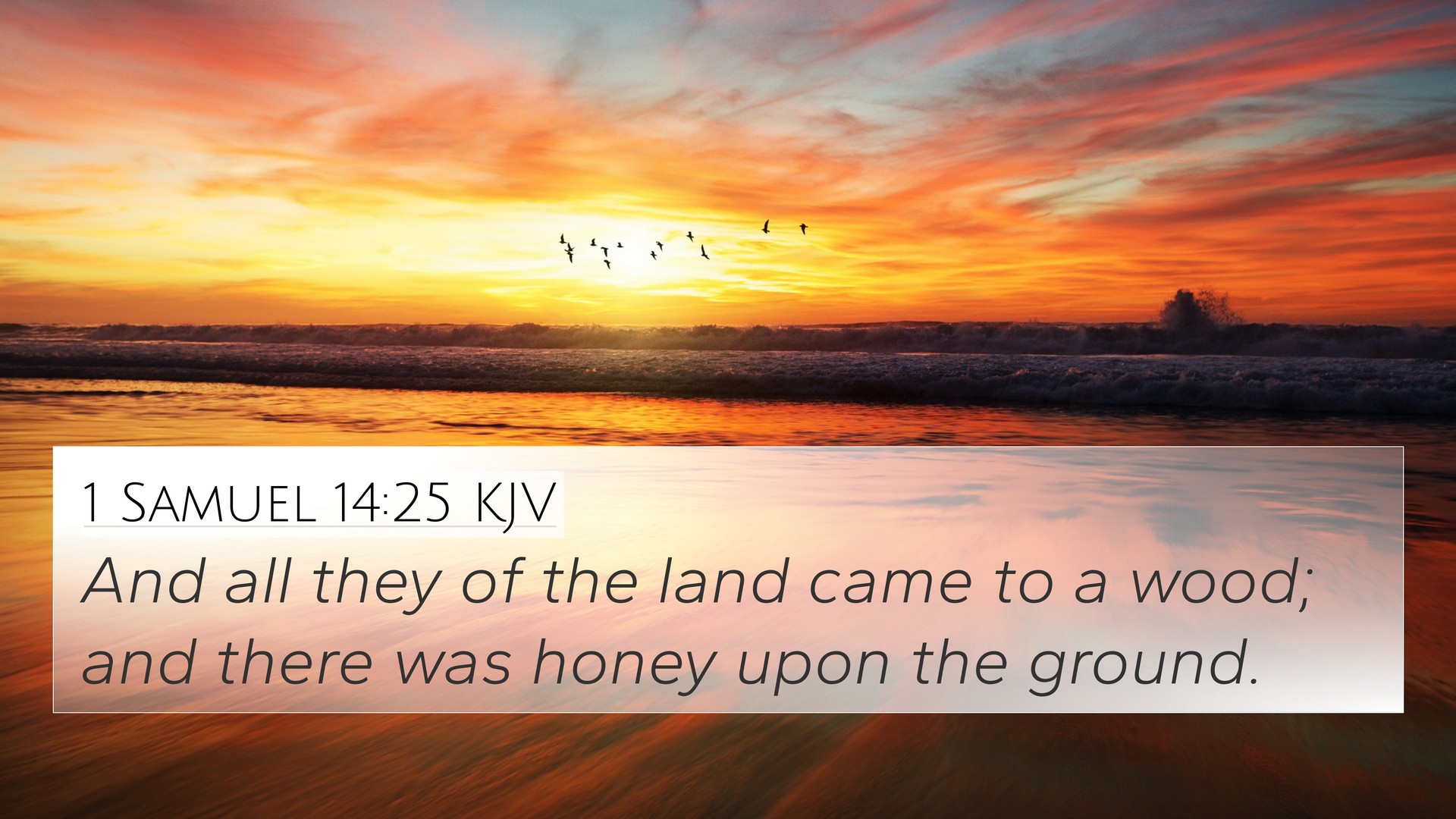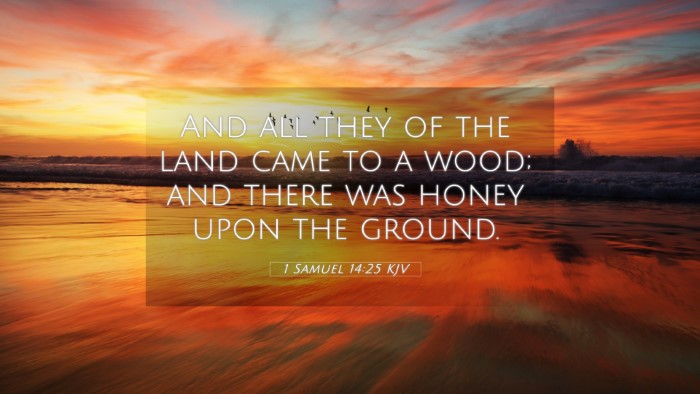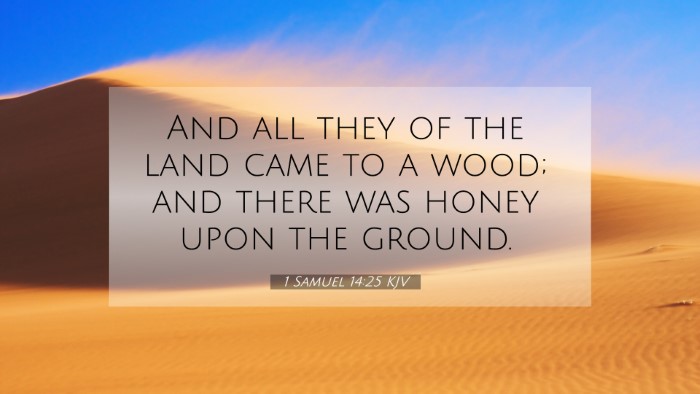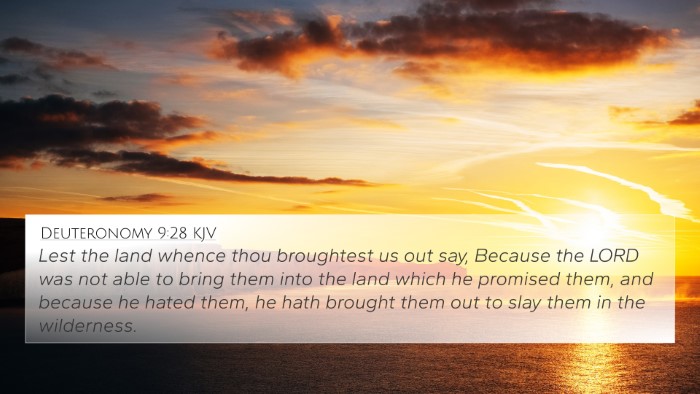Bible Verse Meaning: 1 Samuel 14:25
Verse: "And all they of the land came to a wood; and there was honey upon the ground."
This verse captures a moment during a crucial battle for the Israelite army, led by King Saul and his son Jonathan, as they face the Philistines. By integrating insights from various commentaries, we will explore its significance and related biblical themes.
Contextual Overview
The narrative occurs amidst a critical engagement where Saul's men were weary and hungry. The introduction of honey not only serves as a physical sustenance but also represents broader spiritual nourishings. Understanding the context helps us recognize the vital intersection between the physical and spiritual realms in biblical texts.
Commentary Insights
-
Matthew Henry:
Henry emphasizes the serendipitous nature of the honey found in the woods, illustrating God's provision even in dire situations. He notes that the presence of honey upon the ground mirrors the abundance of spiritual nourishment God provides.
-
Albert Barnes:
Barnes highlights the significance of the honey as a symbol of natural goodness and sweetness amidst hardship. He suggests that this moment points to God's grace and the blessings He offers, even in the midst of warfare.
-
Adam Clarke:
Clarke interprets the honey as a practical means for the exhausted soldiers, suggesting it is a metaphor for hope and rejuvenation. He connects this to the larger narrative of divine intervention and sustenance.
Thematic Connections
The encounter with honey in 1 Samuel 14:25 opens the door for exploring several biblical themes:
- God's Provision: Just as honey sustains the weary soldiers, God provides for all needs (Philippians 4:19).
- Spiritual Nourishment: The abundance of honey symbolizes the sweetness of God's word (Psalm 119:103).
- Joy in Adversity: Honey amidst battle reflects joy that can be found even in challenging times (Romans 5:3-5).
Cross-References for Deeper Understanding
To fully grasp the implications of 1 Samuel 14:25, consider the following cross-references:
- Exodus 3:8: Description of the "land flowing with milk and honey".
- Psalm 19:10: "More to be desired are they than gold, yea, than much fine gold: sweeter also than honey and the honeycomb."
- Proverbs 16:24: "Pleasant words are as an honeycomb, sweet to the soul, and health to the bones."
- 1 Corinthians 10:3-4: Spiritual food and drink in Christ symbolized by physical sustenance.
- John 6:35: Jesus claims to be the bread of life, emphasizing spiritual sustenance.
- 2 Corinthians 1:20: All of God's promises in Christ are "Yes" and amen; paralleling God's provision.
- James 1:17: Every good and perfect gift comes from above, linking divine provisions.
Conclusion
1 Samuel 14:25 reflects a critical moment when physical sustenance symbolizes deeper spiritual truths. Through cross-referencing this verse with related passages, we uncover a rich web of connections that speaks to God's never-failing provision for His people. The honey discovered in the woods serves not just as a source of nourishment but as an emblem of hope and divine intervention, urging believers to recognize God's hand in both their struggles and their sustenance.
Further Exploration
For those seeking to deepen their understanding of biblical cross-referencing, consider employing the following tools:
- Bible Concordance: A helpful resource for finding specific words and their occurrences throughout the scriptures.
- Bible Cross-Reference Guide: Guides to find thematic connections and related texts.
- Cross-Reference Bible Studies: Group studies focusing on how verses connect thematically and contextually.
- Comprehensive Bible Cross-Reference Materials: Utilize various books and online databases for detailed biblical interconnections.
By utilizing these resources, believers can enhance their scriptural understanding and discover the interconnectedness of God’s Word.






